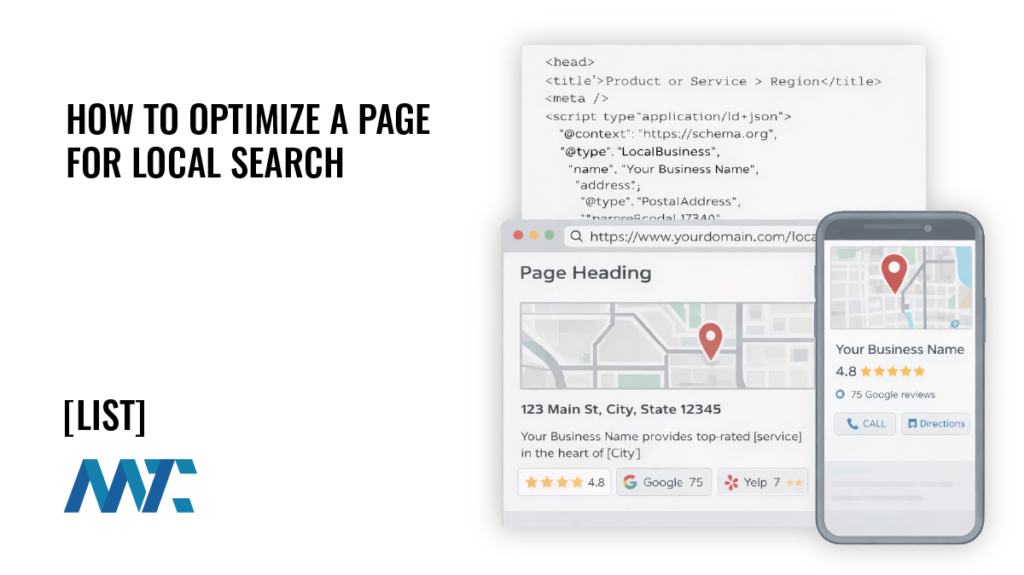Paid Backlinks: How to Spot an SEO Cheat Before They Ruin Your Rankings

Search engine optimization is one of the most misunderstood areas of digital marketing. While Google provides clear webmaster guidelines, some SEO practitioners continue to exploit loopholes, relying on manipulative link schemes to achieve quick results. These shortcuts might boost your rankings temporarily, but they can destroy your visibility and credibility in the long term. Whether intentional or not, the damage caused by shady backlink practices can linger for years, long after your contract with the SEO company ends.
If, however, a webmaster chooses to buy or sell links for the purpose of manipulating search engine rankings, we reserve the right to protect the quality of our index. Buying or selling links that pass PageRank violates our webmaster guidelines.
Google
The High Stakes of Backlink Manipulation
Backlinks remain one of the primary ranking factors in Google’s algorithm, but they must be earned naturally through credible, relevant mentions. When links are paid for, traded in bulk, or generated by private networks, they leave digital footprints that search engines eventually detect. If a human can spot a pattern of manipulation, a machine-learning (ML) algorithm certainly can… or will soon. There have already been some high-visibility brands caught:
- J.C. Penney: Penalized after a New York Times investigation revealed thousands of paid, keyword-rich backlinks from unrelated sites.
- Forbes: Flagged for allowing contributors to embed paid dofollow links in sponsored or guest content without disclosure.
- Overstock.com: Hit with a manual action for offering discounts to universities in exchange for .edu backlinks.
- Rap Genius: Penalized for a link-exchange scheme with bloggers that traded backlinks for content promotion.
- BMW Germany: Temporarily removed from Google results for using doorway pages and manipulative link tactics.
- Expedia: Reportedly suffered ranking drops due to unnatural backlink profiles, though Google never confirmed a formal penalty.
- Gourmet Gift Basket: Allegedly lost rankings from paid link practices.
- Local businesses: Smaller brands have also faced negative SEO or link-buying penalties that damaged their local visibility.
The danger lies in timing. Google’s penalties or manual actions often arrive months after the work was done, meaning a short-term SEO gain can turn into a long-term loss. This makes some backlink schemes a ticking time bomb: your rankings can plummet, and your brand’s authority may be tainted across the web.
NOTE: Many professionals assume that if their site were penalized for paid backlinks, Google would notify them through Search Console and their rankings would collapse overnight. That’s rarely how it works. In most cases, Google’s algorithms don’t impose a visible penalty at all—they devalue the manipulative links, freeze your progress, or quietly throttle your ability to rank higher. You may not even lose your current visibility, but you’ll stop gaining ground no matter how much legitimate SEO effort you apply afterward.
How to Identify a Suspicious Backlink Activity
One of the most evident warning signs of an unethical SEO is the absence of on-site collaboration. If your SEO consultant or agency never asks you to modify your content, structure, or internal linking, chances are their focus is purely off-site—often through questionable backlink tactics.

Using Semrush Backlink Audit is one of the most effective ways to investigate backlink profiles. This tool allows you to track, score, and evaluate the quality of every link pointing to your domain. Here are several advanced techniques to spot potential cheating or link manipulation:
- Offshore and Irrelevant Link Sources: Look at the geographic location or ccTLD of linking domains. If your business operates primarily in the United States, but the majority of your new backlinks originate from unrelated countries, that’s a red flag. Offshore link farms often disguise themselves under blog networks or low-quality directories.
- Common Links Between SEO Clients: Many unethical SEO agencies reuse the same link sources for multiple clients. In Semrush, compare your backlink profile against other sites your agency manages. If you find identical linking domains or identical anchor text patterns across unrelated businesses, the agency is likely buying or bartering backlinks.
- Sudden Link Spikes: A natural backlink profile grows gradually. Use Semrush’s Backlink Audit Trend Graph to review link velocity over time. A sudden spike in referring domains followed by an equally sharp decline often indicates a link-buying campaign or network takedown.
- Unnatural Anchor Text: Healthy backlink profiles contain branded, navigational, and generic anchor text (click here, learn more, visit site). Manipulated profiles, by contrast, show repetitive keyword-rich anchors (best cheap CRM software, top digital marketing agency) that exist purely for SEO manipulation. Semrush provides an anchor text distribution chart that makes these patterns easy to visualize.
- Suspicious Referring Domains: Audit each linking domain’s authority, trust score, and relevance. A surge in links from unrelated topics like casinos, gambling, adult sites, or foreign blogs strongly suggests automation or paid campaigns. In many cases, these backlinks are hosted on expired domains that have been rebuilt to pass link equity, a tactic Google actively devalues.
The Disavow Opportunity
Even if you uncover manipulative backlinks, all is not lost. Competitors sometimes use negative SEO, buying cheap backlinks to harm a rival’s ranking deliberately. This is where Google’s Disavow Tool and Semrush’s Toxic Backlink Report become essential.

Semrush allows you to flag toxic links and export them into a disavow file, which you can submit through Google Search Console. While this doesn’t guarantee immediate recovery, it signals to Google that you’re proactively addressing the problem. Regular disavow audits are a best practice for any competitive industry, particularly when your backlink profile changes rapidly or contains suspicious referring domains.
How to Protect Your Business and Contract
Preventing SEO malpractice starts with accountability. When hiring an SEO consultant or agency, your contract should include:
- Mandatory backlink audits: Require a full backlink report, with clear visibility into referring domains, anchor text, and link sources.
- Disclosure of paid placements: Any link acquired through sponsorship, affiliate programs, or advertising must be disclosed and approved in writing.
- Money-back guarantee: If backlinks purchased by the consultant are discovered, whether directly or through third-party evidence, you should be entitled to a refund.
- Ongoing monitoring: Include quarterly or biannual backlink audits as part of your SEO deliverables to ensure link quality over time.
- Hire multiple SEO consultants: If you have a brand built on trust and reputation, hire a second agency or consultant to audit and monitor the primary agency.
These provisions protect your brand not just during the engagement, but long after it ends.
The Right Way to Build Authority
Legitimate SEO takes time and effort but yields sustainable results. Focus on creating valuable, share-worthy content (whitepapers, original research, industry commentary, or media coverage). Genuine mentions from reputable sites, especially earned through public relations or partnerships, are far more powerful than any paid backlink scheme.
When you have something worth linking to, people will link to it. That’s the essence of ethical SEO and the only strategy that stands the test of algorithm updates.
SEO cheats may promise shortcuts, but they’re selling risk disguised as results. If your SEO company cannot explain how links are acquired or if they avoid transparency altogether, assume the worst. A manipulated backlink profile is not just a technical liability; it’s a reputational one. Protect your business by demanding proof, conducting regular backlink audits, and ensuring that every link pointing to your brand is earned, not bought.







